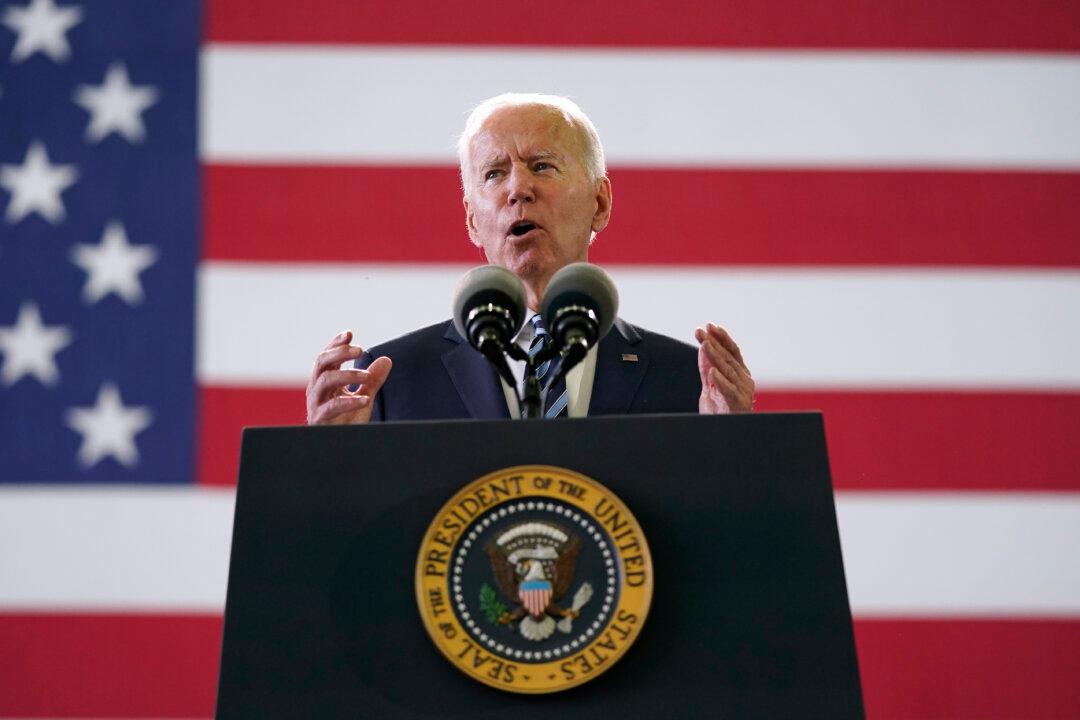President Joe Biden’s administration on Tuesday unveiled a national security strategy that focuses exclusively on domestic terrorism, naming white supremacists and militia extremists as “the most persistent and lethal threats” to America among ideologies motivating domestic terrorists.
Continuing its broad effort to combat violence from homegrown extremists, the administration published the 32-page strategy and the president vowed to both address the violence and the factors that lead to domestic terrorism.





